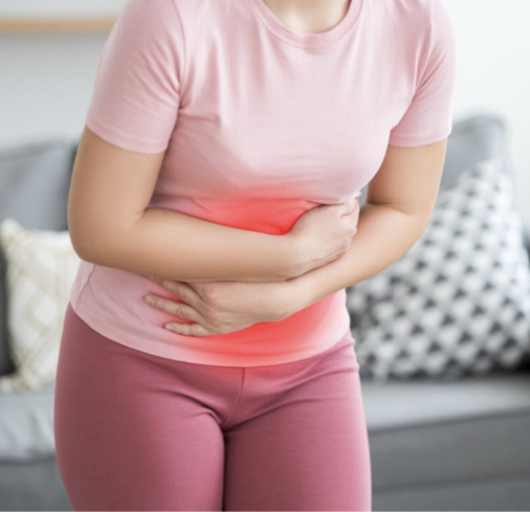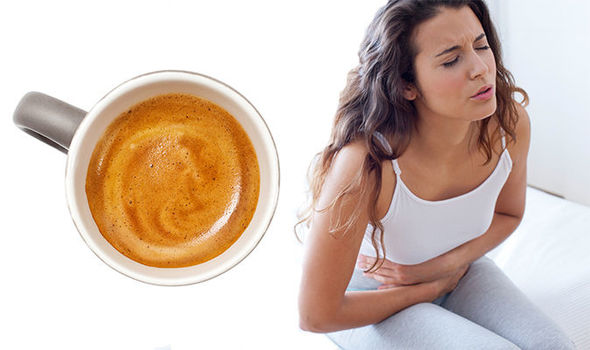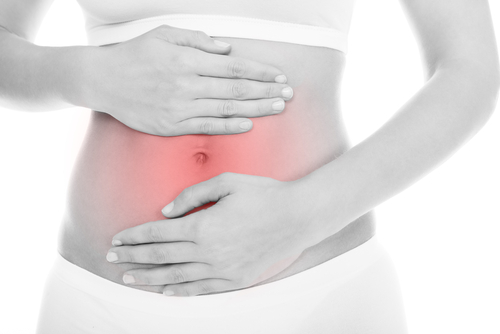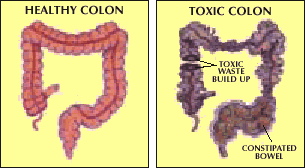Question…coffee bloating?
The short answer is coffee is a natural laxative.
Caffeine stimulates the muscles in our digestive system…
And that can lead to increased bowel movements.
This can increase activity in the production of gas.
And the result is painful bloating and discomfort…

Coffee Bloating – Why Does This Happen?
Discover the Gut Health Coffee Bloating Solution
None of this is difficult to understand, hopefully it makes sense.
It has just never been explained like this before…
We all know how popular coffee is in our daily routine.
But what about the side effect of coffee bloating.
This article dives and and makes a splash into coffee.
I want to share reasons why does coffee cause bloating…
We’ll provide explanation with solutions to reduce bloating.
What’s the Link between coffee and bloating?
How Coffee Affects Digestion
Coffee is a stimulant which effects the digestive system.
And its ability to increase gut motility.
The role of coffee as a drug is to trigger the release of gastrin.
Gastrin is a hormone which stimulates gastric acid production.
What is the impact of coffee’s acidity on the stomach and digestive enzymes.
Coffee and Intestinal Gas
There are certain compounds in coffee which can stimulate the production of gas in the intestines.
Coffee has the ability to relax the muscles of digestive tract.
This can result in the accumulation of gas.
Caffeine promotes the release of stress hormones.
These can affect gut function and contribute to bloating.
What Factors Influence Coffee-Induced Bloating
Caffeine Sensitivity
What are variations in caffeine tolerance among people?
And its ability to impact bloating.
Variations in caffeine tolerance means different people have different responses to caffeine.
Some people may be more sensitive to the effects of caffeine.
While others can tolerate higher amounts without experiencing significant side effects.
This variation in tolerance can impact bloating in the following ways:
Increased Sensitivity
People more sensitive to caffeine may experience heightened digestive reactions.
Some feel bloating, even with relatively small amounts of caffeine.
Our digestive system may be more reactive to the stimulant properties of caffeine.
And this can increase gas production and bloating.
Irritable Bowel Syndrome (IBS)
People with IBS often have heightened sensitivity to various substances, including caffeine.
For people with IBS, caffeine can trigger bloating symptoms.
This may happen because the impact on gut motility and sensitivity.
Gastrointestinal motility refers to the movement of food from the mouth.
Through pharynx (throat), esophagus, stomach, small to large intestines and out of the body.
It may lead to increased gas accumulation, discomfort, bloating.

Stimulation of Gastric Acid
Drinking caffeine can stimulate production of gastric acid in the stomach.
People with a higher tolerance to caffeine…
May be able to handle increased acid secretion more effectively, resulting in less bloating.
People with lower caffeine tolerance may experience discomfort.
And bloating due to the acid stimulation.
Metabolism
Differences in caffeine metabolism can also contribute to variations in bloating.
The rate at which caffeine is broken down.
And eliminated from the body can influence its effects on digestive system.
People with slower caffeine metabolism may experience longer exposure.
The longer exposure to stimulating effects, which can increase bloating.
It’s important to note that individual caffeine tolerance.
And its impact on bloating can vary widely.
Factors such as genetics, age, overall health…
And other lifestyle habits can influence how people respond to caffeine.
It’s far better to pay attention to personal reactions.
And adjust caffeine intake accordingly to manage bloating symptoms effectively.
How genetics and enzyme activity can affect caffeine metabolism and sensitivity.
Genetic Variations
Genetic factors can influence the enzymes responsible for caffeine metabolism.
This is particularly to cytochrome P450 1A2 (CYP1A2).
Variations in CYP1A2 gene can result different enzyme activity levels.
This affects the speed at which caffeine is metabolised...
People with certain genetic variations may be “fast metabolisers”
And this helps them to process caffeine faster.
While others may be “slow metabolisers” who process it more slowly.
This can impact caffeine sensitivity and the duration of its effects.
Caffeine Clearance
Enzymes, such as CYP1A2 are responsible for breaking down caffeine in the liver.
Faster enzyme activity results in quicker caffeine clearance from the body, reducing overall effects.
Slow metabolisers may experience a longer duration of caffeine’s stimulant effects.
This may increase heart rate, nervousness, and digestive disturbances like bloating.
Sensitivity to Adenosine Receptors
Caffeine works by blocking adenosine receptors in the brain.
The promotes wakefulness and alertness.
Genetic variations in adenosine receptor genes can affect sensitivity to caffeine.
Some people may have more adenosine receptors.
Making them more sensitive to the effects of caffeine.
While others may have fewer receptors, leading to lower sensitivity.
Acetylation Enzymes
Genetic variations in acetylation enzymes, such as N-acetyltransferase 2 (NAT2).
This can impact caffeine metabolism.
These enzymes are involved in the breakdown of caffeine and its metabolites.
Different acetylator phenotypes, slow and fast acetylators…
Can influence the rate of caffeine clearance and affect on sensitivity.
Caffeine metabolism and sensitivity are influenced by a combination of factors.
Both genetic and environmental.
On top of other lifestyle factors like smoking, oral contraceptive use…
And certain medications can also interact with caffeine metabolism.
Understanding genetic variations and enzyme activity can help us deal with caffeine.
Bear in mind the impact on bloating and digestive symptoms.
The importance of recognising personal caffeine sensitivity and its role in bloating.
Recognising personal caffeine sensitivity is crucial for understanding its role in bloating.
And digestive issues.
Individual Variations
Every one of us has a unique physiology, including the digestive system.
Some people may be more sensitive to the effects of caffeine.
They can experience digestive disturbances like bloating, gas, or even acid reflux.
By recognising personal caffeine sensitivity…
You can make informed choices about caffeine consumption.
And avoid high acid coffee and choose low-acid coffee brands.
This can help minimise bloating-related symptoms.
Gut-Brain Axis
The gut and brain communicate through a complex network known as gut-brain axis.
Caffeine, as a stimulant can have an impact on this communication pathway.
For some people excessive caffeine intake can over stimulate the gut.
This can cause bloating and discomfort.
Understanding personal caffeine sensitivity can help identify if bloating is linked to caffeine.
And make necessary adjustments.
Other Dietary Factors
Bloating is not solely caused by caffeine.
There are other dietary factors can contribute as well.
People who are more sensitive to caffeine may be more susceptible to other foods.
It can be the ingredients which causes bloating...
Like carbonated beverages, high-fat foods or certain types of carbohydrates.
Recognising personal caffeine sensitivity can help differentiate between caffeine-related bloating.
And other dietary triggers, allowing us to modify our diet accordingly.
Lifestyle Modifications
By recognising the link between caffeine sensitivity and bloating.
We can take proactive steps to manage our symptoms.
This may involve reducing or eliminating caffeine consumption.
Perhaps using decaffeinated alternatives.
Maybe moderating caffeine intake by adjusting timing or amount of consumption.
Test and experiment with different approaches can help…
Its all about minimises bloating while enjoying our favourite caffeinated beverages.
Overall, recognising personal caffeine sensitivity is key.
And its impact in bloating empowers us to make informed choices.
Dietary habits and digestive health effectively go hand in hand.
It’s essential to listen to your body.
See whats happening and feel how caffeine affects you personally.
And make adjustments to promote a comfortable and healthy digestive system.

Coffee Roasting and Brewing Methods
Coffee bean roasting levels on acidity and bloating.
The type of brewing methods (e.g., espresso, French press, drip) on coffee’s compounds.
Including the impact with effects on digestion.
The effect of additives like milk or sweeteners in exacerbating bloating symptoms.
Gut Health and Microbiome
The connection between gut health and the microbiome.
These influence the susceptibility to coffee-induced bloating.
How an imbalanced gut microbiota may contribute to increased sensitivity to coffee.
Strategies to improve gut health and minimise bloating.
Solutions to Minimise Coffee-Induced Bloating
Moderation and Timing
The importance of consuming coffee in moderation.
This stops excessive stimulation of the digestive system.
Try limiting coffee intake to reduce the risk of bloating.
Experiment drinking coffee with food as a buffer for less impact on digestion.
Choosing the Right Coffee and Preparation Methods
Suggestions for selecting lower-acid coffee beans and blends.
Alternative brewing methods that may yield less bloating-inducing coffee.
Tips for reducing the overall strength or concentration of coffee to minimise bloating.
Managing Additives and Accompaniments
The impact of milk, cream, and alternative milk options on coffee-induced bloating.
Strategies for reducing or eliminating sweeteners or artificial additives.
Exploring alternative flavourings and spices to enhance coffee without increasing bloating.
Supporting Gut Health
The importance of healthy gut microbiome to reduce sensitivity to coffee.
Using probiotic-rich foods and supplements to support gut health.
Strategies for improving digestion and reducing bloating.
Become aware and mindful eating and regular physical activity.
Frequently asked Questions
Does coffee really cause bloating?
While coffee can cause bloating for some people.
Its effects vary from person to person.
Factors such as caffeine sensitivity, digestive system.
And coffee preparation methods determine whether coffee causes bloating.
Why do I feel bloated after drinking coffee?
Feeling bloated after drinking coffee can be a result of various factors.
Coffee stimulates production of stomach acid.
Acid can lead to bloating and discomfort for some people.
Coffee can have a laxative effect and increase bowel movements.
All these can cause bloating and gas.
What are the common symptoms of bloating caused by coffee?
The symptoms of bloating caused by coffee can include abdominal discomfort.
A feeling of fullness, increased gas production, distension of the stomach.
Some people may also experience burping or flatulence.
Is it normal to experience bloating after consuming coffee?
Its common for some people to experience bloating after consuming coffee.
But not everyone will have the same effect and reaction.
Factors such as caffeine sensitivity, gut health, and diet can influence bloating.
Are there specific types of coffee that are more likely to cause bloating?
There is no specific type of coffee that causes bloating.
There are known factors contributing to increased bloating.
It maybe highly acidic coffee or coffee containing added ingredients.
Some have sweeteners or dairy which may cause bloating.
Experiment with different coffee and preparation methods to identify triggers.

Conclusion
In the article, we discovered links between coffee and bloating.
We highlighted several key points…
Firstly, while coffee can cause bloating in some people.
It may not affect everyone in the same way.
Factors such as caffeine sensitivity, individual digestive system.
And coffee preparation methods can influence bloating.
We also emphasised the importance of testing.
Personal experimentation is key to finding the right balance.
Some people may find that reducing their coffee consumption helps.
And switching to decaffeinated options helps alleviate bloating symptoms.
Others may benefit from adjusting their brewing methods.
And avoiding adding milk or cream.
It’s essential to listen to your body…
And recognise your personal caffeine sensitivity.
If you experience painful or excessive bloating after consuming coffee…
It may be better to use alternatives.
And make small adjustments to your coffee routine.
Remember, everyone’s body and digestive system is unique.
Finding what works best for you is key to enjoying coffee without discomfort.
Coffee bloating symptoms may point to a leaky gut…
With the symptoms varying so greatly.
No wonder why so many of us have no clue they may benefit from gut repair.
Leaky gut may or may not have symptoms associated with it.
In fact, it’s what allows health to get out of control…
You see, so many people can have symptoms.
And they’ve experienced it their entire life.
So they don’t really recognise the problem.
Consult a healthcare professional for personalised guidance based on your needs and if you have persistent or severe bloating symptoms after consuming coffee…
P.S. It can be really difficult to pinpoint one single cause of leaky gut or other chronic health issues.
But we have a “Gut Repair” special report we now know certain foods, environmental toxins, heavy metals, medications, stress can contribute to serious gut inflammation, which can spiral into chronic health issues.
Comment below if you would like a copy of the Gut Repair special report.
 Can you lose weight eating anything you want? Yes, it is absolutely possible to lose weight and eat whatever you want.
Can you lose weight eating anything you want? Yes, it is absolutely possible to lose weight and eat whatever you want.








